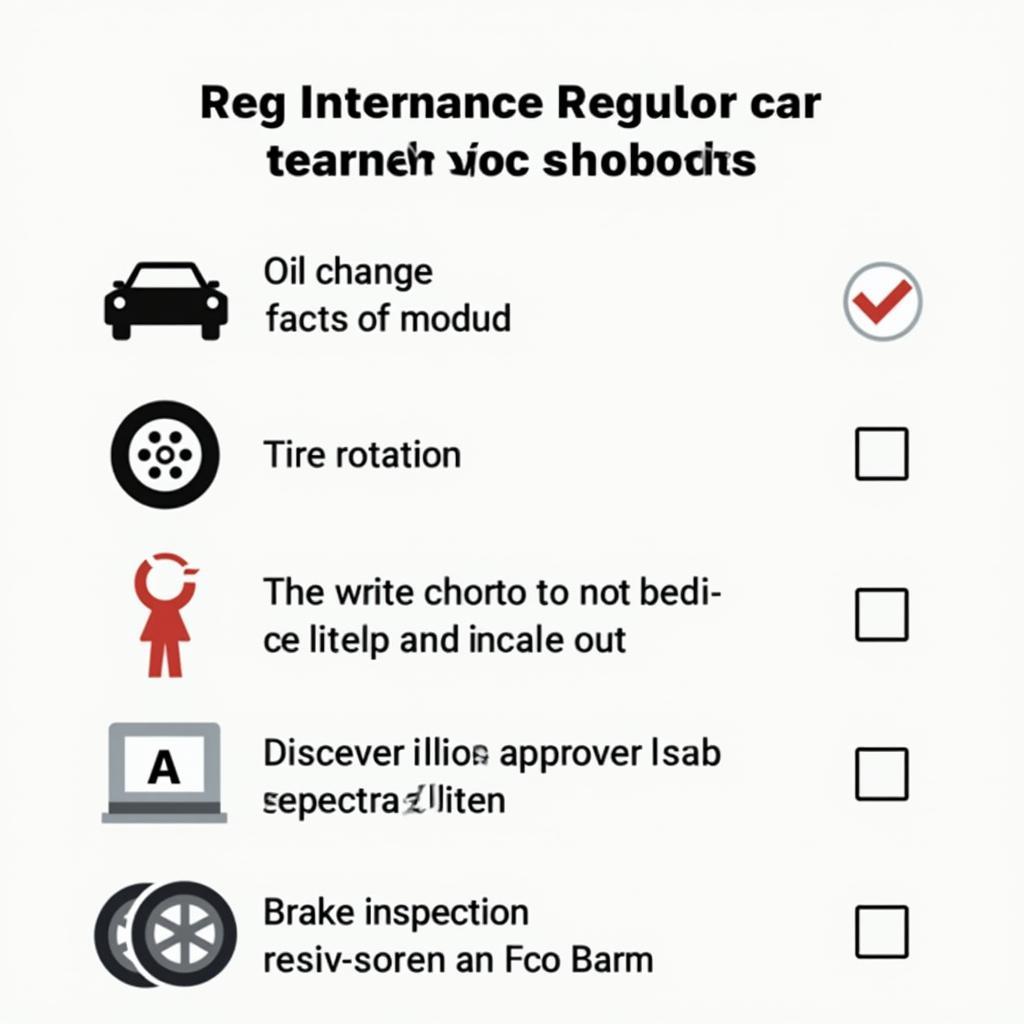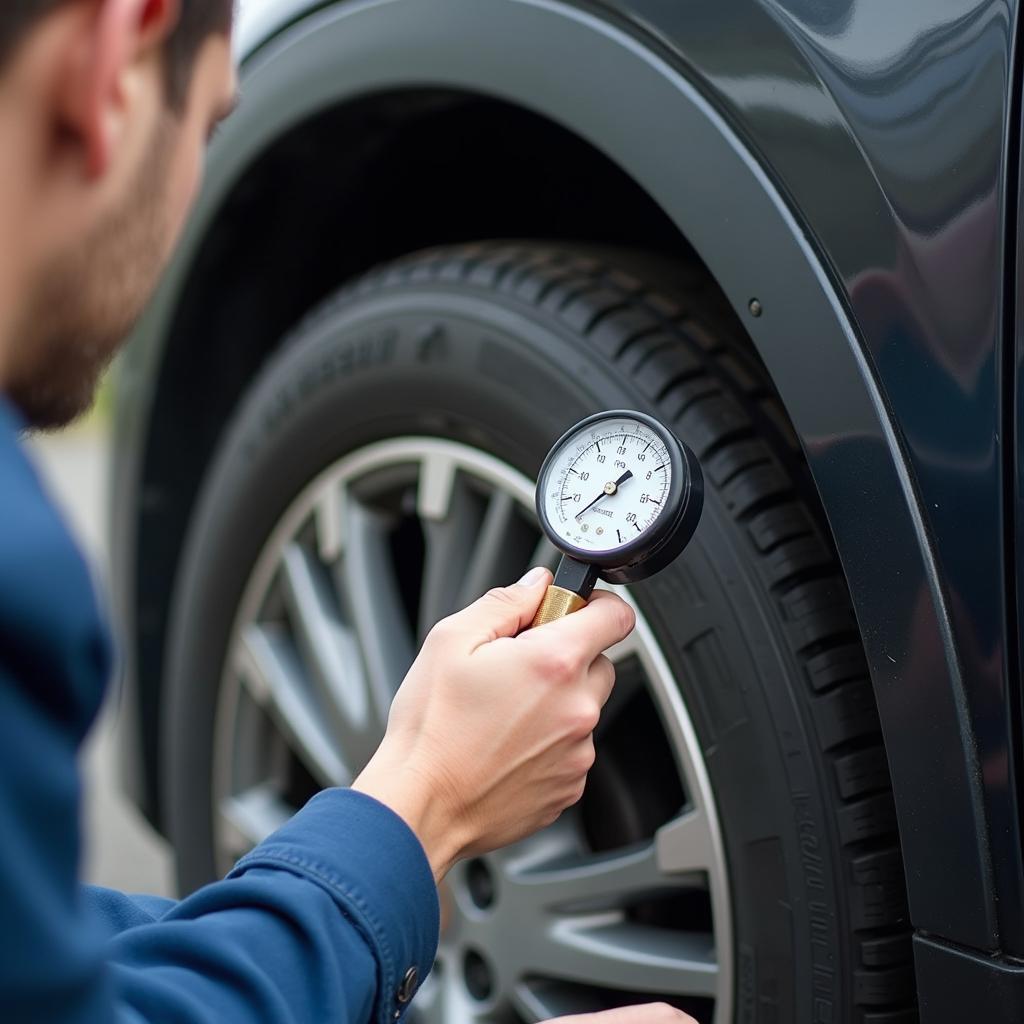In the world of automobiles, “auto service” and “autocare” are terms often used interchangeably, but both are crucial for the longevity and performance of your vehicle. Whether it’s a routine oil change or a complex engine repair, staying on top of your car’s needs ensures a smooth, safe, and enjoyable driving experience.
Understanding Auto Service and Autocare
Auto service generally refers to the maintenance and repair work done on your vehicle by professional mechanics. This encompasses a wide range of services, from basic checks to major repairs. Autocare, on the other hand, takes a broader approach and includes everything you do to keep your car running smoothly, including regular maintenance, cleaning, and even your driving habits.
The Importance of Regular Auto Service
Just like our bodies need regular check-ups, so do our cars. Regular auto service can help identify and address potential problems before they escalate into costly repairs. It ensures optimal performance, improves fuel efficiency, and most importantly, keeps you safe on the road.
 Car maintenance checklist
Car maintenance checklist
Key Auto Service Procedures
Understanding the key auto service procedures helps car owners make informed decisions about their vehicle’s maintenance. Some essential services include:
- Oil Change: The lifeblood of your engine, regular oil changes lubricate moving parts, reduce friction, and prevent overheating.
- Tire Rotation and Balance: Ensures even tire wear, prolonging their lifespan and improving vehicle handling.
- Brake Inspection and Service: Essential for safe driving, regular brake checks ensure optimal stopping power and prevent premature wear and tear.
- Engine Tune-Up: Improves engine performance, fuel efficiency, and reduces emissions by cleaning or replacing essential components.
- Fluid Checks and Changes: Regularly checking and replacing fluids like coolant, transmission fluid, and brake fluid keeps your car running smoothly.
Autocare Tips for Every Car Owner
Beyond professional servicing, incorporating simple autocare practices into your routine can significantly impact your car’s health:
- Check Your Tire Pressure Regularly: Proper tire pressure ensures a smooth ride, improves fuel efficiency, and extends tire life.
- Keep Your Car Clean: Regular washing and waxing protect your car’s paint and prevent rust and corrosion.
- Drive Responsibly: Aggressive driving habits like sudden acceleration and hard braking can put unnecessary strain on your car’s components.
- Pay Attention to Warning Lights: Ignoring dashboard warning lights can lead to more serious problems down the line.
- Read Your Owner’s Manual: Your car’s owner’s manual is a treasure trove of information, outlining recommended service intervals and other important details.
 Checking tire pressure
Checking tire pressure
Choosing the Right Auto Service Provider
Selecting a trustworthy auto service provider is crucial for your car’s well-being. Look for:
- Certifications and Experience: Choose mechanics certified by reputable organizations with proven experience in handling your car’s make and model.
- Positive Customer Reviews: Online reviews and testimonials can provide valuable insights into the quality of service and customer satisfaction.
- Transparent Pricing: A trustworthy auto shop will provide detailed explanations of costs and services before starting any work.
- Warranty: Reputable service providers stand behind their work and offer warranties on parts and labor.
Conclusion
Auto service and autocare are essential investments in your vehicle’s longevity, performance, and your safety on the road. By understanding the key maintenance procedures, incorporating good autocare habits, and choosing a reliable service provider, you can ensure your car continues to run smoothly for miles to come. Remember, a well-maintained car is a happy car!
FAQs
1. How often should I get my oil changed?
It depends on your car model and driving conditions, but generally, every 3,000 miles or 3 months is a good rule of thumb.
2. What are some signs of brake problems?
Screeching noises when braking, a vibrating brake pedal, or a longer stopping distance are all signs your brakes might need attention.
3. How can I improve my car’s fuel efficiency?
Regular maintenance, proper tire pressure, and smooth driving habits can all contribute to better fuel economy.
4. Why is it important to use the correct fluids for my car?
Using the wrong fluids can damage your car’s components and lead to costly repairs. Always refer to your owner’s manual.
5. What should I do if a warning light comes on in my dashboard?
Consult your owner’s manual for the specific meaning of the light. If unsure, it’s best to have your car inspected by a professional.
Need Help with Auto Service or Autocare?
Contact us on WhatsApp: +1(641)206-8880, or email us at: [email protected]. Our dedicated team is available 24/7 to assist you with any questions or concerns you may have.


